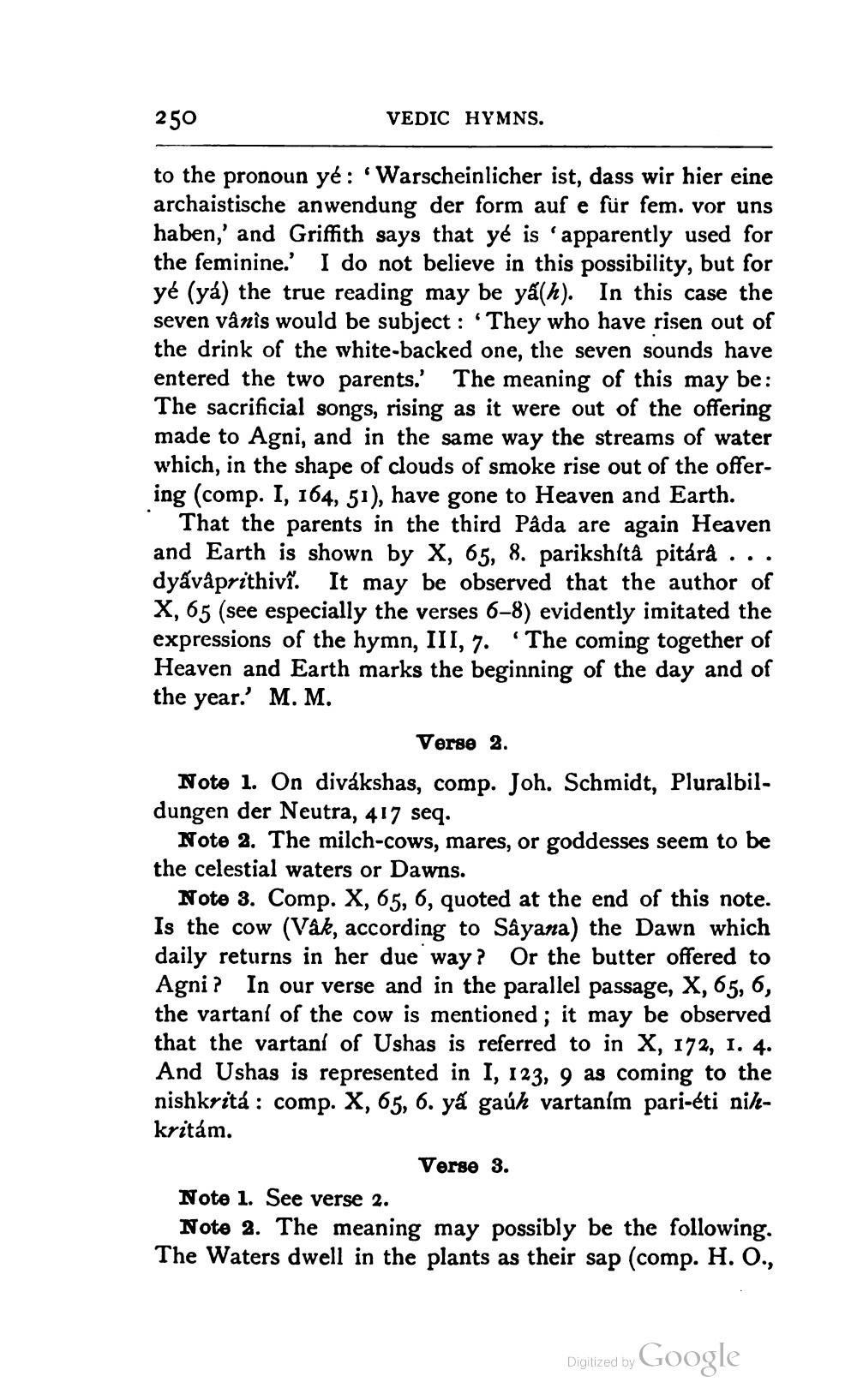________________
250
VEDIC HYMNS.
to the pronoun yé: 'Warscheinlicher ist, dass wir hier eine archaistische anwendung der form auf e für fem. vor uns haben,' and Griffith says that yé is 'apparently used for the feminine.' I do not believe in this possibility, but for yé (yá) the true reading may be ya(h). In this case the seven vånis would be subject : 'They who have risen out of the drink of the white-backed one, the seven sounds have entered the two parents. The meaning of this may be: The sacrificial songs, rising as it were out of the offering made to Agni, and in the same way the streams of water which, in the shape of clouds of smoke rise out of the offering (comp. I, 164, 51), have gone to Heaven and Earth.
That the parents in the third pada are again Heaven and Earth is shown by X, 65, 8. parikshità pitára ... dyávåprithivi. It may be observed that the author of X, 65 (see especially the verses 6-8) evidently imitated the expressions of the hymn, III, 7. "The coming together of Heaven and Earth marks the beginning of the day and of the year.' M. M.
Verse 2. Note 1. On divákshas, comp. Joh. Schmidt, Pluralbildungen der Neutra, 417 seq.
Note 2. The milch-cows, mares, or goddesses seem to be the celestial waters or Dawns.
Note 3. Comp. X, 65, 6, quoted at the end of this note. Is the cow (Vâk, according to Sâyana) the Dawn which daily returns in her due way? Or the butter offered to Agni? In our verse and in the parallel passage, X, 65, 6, the vartanl of the cow is mentioned; it may be observed that the vartani of Ushas is referred to in X, 172, 1. 4. And Ushas is represented in I, 123, 9 as coming to the nishkrita : comp. X, 65, 6. ya gaúh vartaním pari-éti nikkritám.
Verse 3. Note 1. See verse 2.
Note 2. The meaning may possibly be the following. The Waters dwell in the plants as their sap (comp. H. O.,
Digitized by Google




